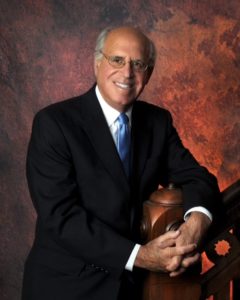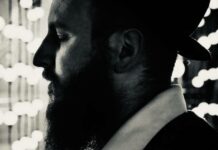
Rabbi Charles Sherman
This is my first High Holyday season when I have not been on the pulpit as a rabbi since I was 18 years old; 58 years ago, I led youth services at Brith Israel, “D” and the Boulevard.
Not unlike a lot of folks who have retired, I am finding both contentment and ambivalence. Retirement is no doubt a bit liberating with no timelines, no Holyday prep, no sermon critiques. But the transition from pulpit to pew also translates into an absence of definition and identity.
My decision to retire on Dec. 31 was rooted in a deep-seated feeling that it was “time.” While I knew I was preaching my last Holyday messages — and shared that with my faith community — there was an obvious lack of closure, and I recognize now a desire to share some reflections on what I learned over almost six decades of preaching.
First, I learned the importance of community and the warmth of Jewish ritual — the comfort of the rhythms of the liturgical year. I have felt the peace of being embraced even by those with whom I may have disagreed, being it when I was lifted on a chair at my daughter’s wedding or when dirt was tossed on my son’s grave. I learned that many answers I thought I had as a rabbi were not particularly convincing or comforting.
I learned the truth about unresolved issues: You learn to live with them, but they are always there. I learned that no shortcuts exist in this highway of life, and all of us at one time or another must walk through “the valley.” But I learned that we are all survivors, and that the criteria for friendship is just being there. I learned I can still sometimes be really angry at God and yet remain a believer in a sacred relationship.
Someone once reminded me: There is no single truth. Sorrow is a truth, but no more than hope; loss is a truth, but no more than love. The words we use to help relieve the pain of all the slings and arrows are also used wisely, more than a relief; they are a defense against outrageous fortune. They encourage us to struggle against the despair of defeat. And although rude fate will intervene to mock our struggle, we will not concede.
When our parents pass away, when our children leave home, when we retire, life does go on albeit changed. And these transitions are often very hard and bittersweet. But there are new challenges and new projects awaiting us.
I recall the story of Moses shattering the Ten Commandments upon returning from Mount Sinai and witnessing the people’s disobedience. God’s response was clear and straightforward: There is no time for self-pity and the work needs to be done. Moses climbed the mountain again for a second set of tablets. And the rest is history.
I treasured my relationship with Rabbi Harold Kushner, who passed away several months ago. He was a respected colleague, a thoughtful writer, elegant preacher, a caring friend. His words resonate, especially at this time of the year, which is defined by transitions, life challenges, vulnerabilities, possibilities and dreams.
“If you have been brave enough to love and sometimes you won and sometimes you lost; if you have cared enough to try, and sometimes it worked and sometimes it didn’t; if you have been bold enough to dream and found yourself with some dreams that came true and some broken pieces of dreams that didn’t, that fell to the earth and shattered, then you can look back from the mountaintop you now find yourself standing in, like Moses, contemplating the tablets that would guide human behavior for millennia, resting in the Ark alongside the broken fragments of an earlier dream. And you, like Moses, can realize how full your life has been and how richly you are blessed!”
Rabbi Charles Sherman is the former rabbi at Melrose B’nai Israel Emanu-El in Elkins Park and the author of “The Broken and The Whole, Discovering Joy After Heartbreak: Lessons From a Life of Faith.”






